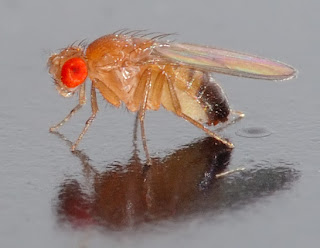The article Space Laser Spies for Woodpeckers by Jonathan Amos for the BBC caught my eye today due to the way that I woke up this morning. I’m home in New Jersey for the holidays, and the back side of my parents house is wood so we’ve had a few woodpeckers stop by in the past.
| Source: New Jersey Birds.com |
This morning I fell out of bed, startled by what sounded like an attack from robotic woodpeckers. I stumbled out into the hall, only to figure out in my half-asleep state that the noise was radiating from the inside of the house, from the plumbing. Following the noise, I found my Mom in the basement doing laundry. Apparently the noise the sink next to the washer makes is very similar to a robotic woodpecker attack. I know you all appreciated that little anecdote, but now on to the scientific side of woodpeckers.
Researchers at the University of Idaho are developing lasers that can be attached to satellites to woodpeckers in the state to determine which parts of the forests they favor. The researchers hope the satellite guided lasers will be a better way to track the woodpecker, which is an indicator species. Being an indicator species means that if the woodpecker is healthy and thriving in different parts of the forest, then it is likely that the forest itself is healthy and doing well.
If the laser-satellites prove to be a successful way of surveying for a species, it could eliminate more labor-intensive and costly means of surveying like sending people into the forest on foot to assess the environment’s health. This is an instance where I have to say, even though we still don’t have flying cars, we are definitely living in the future.

